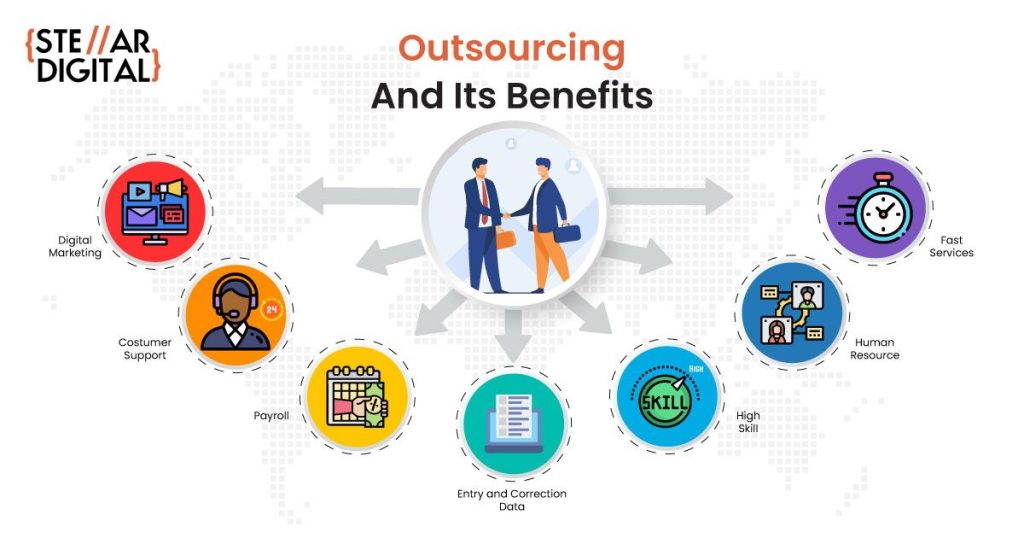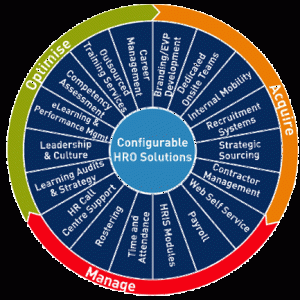
In today’s fast-paced and highly competitive business landscape, companies are increasingly looking for effective strategies to expand their global footprint and reach new markets. Strategic outsourcing, particularly in the technology sector, has emerged as a game-changing approach that allows businesses to focus on their core competencies while leveraging external expertise, resources, and cost advantages to drive global market expansion. This article explores the key benefits and considerations of strategic outsourcing in the tech niche.
Understanding Strategic Outsourcing
Strategic outsourcing involves partnering with external service providers to delegate non-core business functions, processes, or projects. By entrusting specialized tasks to third-party experts, companies can streamline operations, reduce costs, and gain access to a wider pool of resources and talent. In the tech niche, organizations often outsource activities such as software development, customer support, quality assurance, and infrastructure management, among others.
The Benefits of Strategic Outsourcing for Global Market Expansion
1. Cost Efficiency and Scalability
One of the primary advantages of strategic outsourcing is cost efficiency. By outsourcing non-core functions, businesses can eliminate the need for in-house teams, infrastructure, and associated overhead costs. External service providers often operate from regions with lower labor and operational expenses, enabling significant cost savings. Additionally, outsourcing allows companies to scale their operations rapidly and flexibly, leveraging the expertise and resources of their service providers as demand fluctuates.
2. Access to Specialized Expertise
In the dynamic tech sector, staying ahead of the curve requires expertise in various areas. However, building and maintaining an in-house team with deep knowledge across diverse disciplines can be both costly and challenging. With strategic outsourcing, businesses can tap into the specialized expertise offered by external vendors. These vendors often have a proven track record, experience across multiple domains, and a dedicated focus on staying at the forefront of technological advancements.
3. Accelerated Time-to-Market
As businesses strive to seize new market opportunities, time-to-market becomes a critical factor. Strategic outsourcing accelerates product development and deployment by leveraging the specialized skills and resources of the service provider. With access to specialized talent and well-established processes, companies can expedite innovation, reduce development cycles, and gain a competitive edge in global markets.
4. Enhanced Focus on Core Competencies
Outsourcing non-core functions and activities allows organizations to redirect their focus and resources towards core competencies. By entrusting secondary tasks to external experts, businesses can concentrate on areas that drive their competitive advantage. This enhanced focus enables companies to innovate, develop cutting-edge products, and deliver exceptional value to customers, ultimately driving global market expansion.
5. Risk Mitigation and Business Continuity
Strategic outsourcing helps mitigate risks associated with economic fluctuations, market uncertainties, or disruptions in the supply chain. By diversifying service providers and leveraging their global presence, businesses reduce dependence on a single market or region. This approach enhances business continuity, as service providers often have robust disaster recovery plans and seamless backup systems in place.
Considerations for Successful Strategic Outsourcing
While strategic outsourcing can deliver significant benefits, it requires careful planning and execution to maximize results. Here are some considerations to keep in mind:
1. Clear Objectives and Scope
Prior to outsourcing, define clear objectives, outcomes, and the scope of work. Develop a detailed outsourcing strategy that aligns with your global market expansion plans and fosters a lasting partnership with the chosen service provider.
2. Due Diligence and Partner Selection
Conduct thorough due diligence to evaluate potential partners. Consider factors such as their reputation, expertise, experience in the tech niche, financial stability, cultural alignment, and references from existing clients. Look for service providers who share your vision and can provide measurable value.
3. Effective Communication and Collaboration
Establish strong lines of communication with your chosen service provider. Clearly communicate expectations, requirements, and timelines. Regularly engage in collaborative discussions and maintain transparency to foster a productive and efficient partnership.
4. Security and Intellectual Property Protection
Ensure the service provider adheres to stringent security protocols and has robust measures in place for protecting intellectual property. Clearly define contractual terms regarding data privacy, confidentiality, ownership rights, and non-disclosure agreements.
5. Monitoring, Evaluation, and Continuous Improvement
Regularly monitor and evaluate the progress and outcomes of outsourced activities. Implement performance metrics and key performance indicators (KPIs) to ensure the service provider meets agreed-upon standards. Use this data to identify areas for improvement and foster continuous innovation and optimization.
Conclusion
Strategic outsourcing has become an essential tool for tech companies seeking global market expansion. By leveraging external expertise, cost advantages, specialized talent, and scalable resources, businesses can focus on core competencies, accelerate time-to-market, reduce costs, and mitigate risks. However, successful strategic outsourcing requires careful planning, due diligence, effective communication, and ongoing evaluation to foster productive and long-lasting partnerships with chosen service providers. Embracing strategic outsourcing can empower tech companies to excel in the global arena and drive sustainable growth in an increasingly interconnected world.


